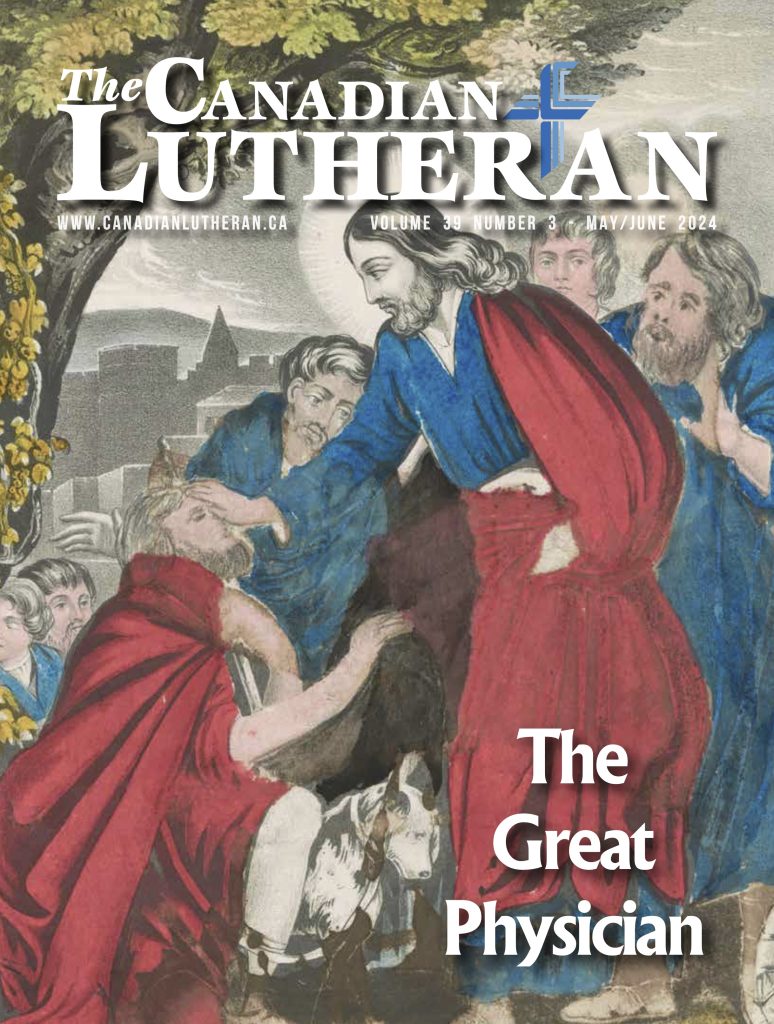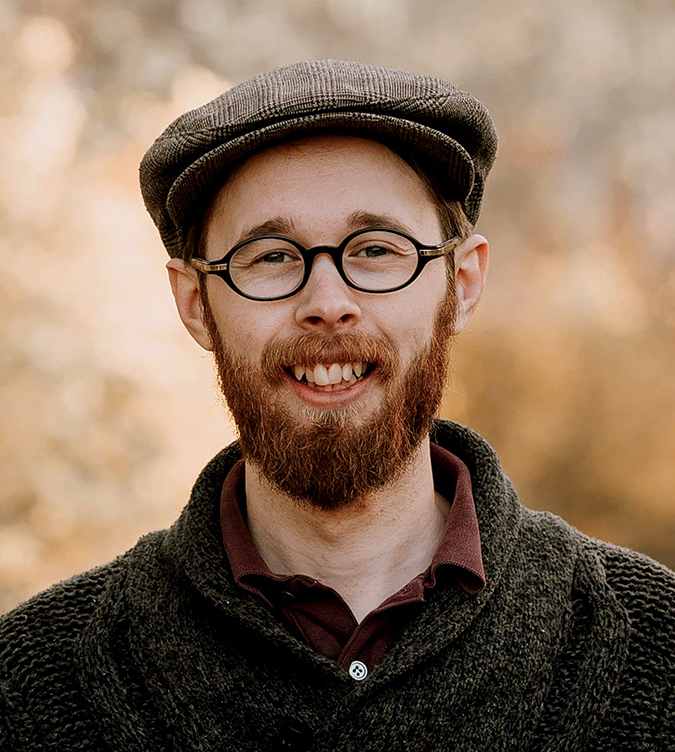The Great Physician
 by Mathew Block
by Mathew Block
Jesus had returned to the town of Capernaum, and the crowds were so eager to get a glimpse of Him that they overran the place where He was; no one else could get close to Him. “And many were gathered together,” we read in the Gospel of St. Mark, “so that there was no more room, not even at the door” (2:2; cf. Luke 5). But that doesn’t mean other people weren’t trying to get in. Outside, a group of men brought their paralyzed friend to see Jesus. “And when they could not get near Him because of the crowd,” St. Mark writes, “they removed the roof above Him, and when they had made an opening, they let down the bed on which the paralytic lay” (2:5).
The paralyzed man now lay before Jesus—before that great healer about whom he had heard so much, that great healer who in this very town had healed so many before (see Mark 1:29-34). And Jesus, full of compassion, turned to the man… and didn’t heal him.
Instead, He said: “Son, your sins are forgiven” (2:5). These are not the words the paralyzed man expected. Nor are they, if we are honest, the words we would hope to hear when we come to Jesus in illness or suffering. We want a cure—a solution to what ails us. And Jesus does too. But He is the Great Physician; He looks deeper than surface-level symptoms. He cuts to the heart of things, seeking the ultimate cause of pain and suffering and every evil. And He gives His diagnosis: the problem underlying all of it, He says, is sin.
In fact, this is the very reason why the Great Physician has come at all: to root out sin. Jesus explains this clearly in the story which immediately follows that of the paralyzed man. “Those who are well have no need of a physician, but those who are sick,” Jesus says. “I came not to call the righteous, but sinners” (2:17). Nor is this a rare condition; we are all sinners. The paralysis which afflicts human hearts with sin is no less debilitating than the paralysis of the man who could not walk. In neither case is human will or effort enough to overcome the disability.
Thankfully, Jesus not only has the diagnosis; He offers Himself as the cure. “Surely He has borne our infirmities and carried our diseases,” the Prophet Isaiah writes, “yet we considered Him stricken, struck down by God, and afflicted” (53:4 NRSV). He takes our sin upon Himself and dies in our place—dies on a cross—that in His resurrection we might find eternal life. He forgives us our sin, just as He forgave the sin of the paralyzed man.
This is the work of the Great Physician, work which He accomplishes through His Word and Sacraments for our eternal salvation.
That doesn’t mean Jesus doesn’t care also about our bodily needs. He cares deeply. And He demonstrates that compassion for the paralyzed man in Capernaum by ultimately healing his broken body as well. But Jesus performs this miracle—indeed, all His miracles—primarily to demonstrate His authority to also heal our corrupt nature. He reveals His power so that we might trust He can also forgive sin (Mark 2:10-12). Because ultimately, that is Jesus’ goal and purpose: to heal sinners of their sin.
This is the work of the Great Physician, work which He accomplishes through His Word and Sacraments for our eternal salvation. But as we have said, God cares also for our earthly live, and so we thank Him for the work of lesser physicians—those whose vocation it is to bring about healing of the body. My wife is a physician. She does many wonderful things—things which, to my untrained eye, seem almost miraculous. And in a sense, they are. For God works through her and other healthcare workers—even those who do not know Him—to bring about healing.
But of course, people can also sin against vocation. Our first feature this issue reflects on the challenge that euthanasia and physician assisted suicide in Canada poses for everyday Christians (page seven). In our second feature, we reflect on the work of St. Luke, asking how his training as a physician contributed to his work writing his Gospel and the Book of Acts (page ten).
O God, we thank you for the work of doctors and other healthcare workers who use their training in ways to heal and to help. And we pray that their vocation will be safeguarded against the encroachment of the culture of death. We thank You also, dear Lord, for the ministry of Your Son our Great Physician, Jesus Christ, who brings us true and eternal healing through His death and resurrection. Amen.
 “Praise the LORD, my soul, and forget not all His benefits—who forgives all your sins and heals all your diseases, who redeems your life from the pit and crowns you with love and compassion, who satisfies your desires with good things so that your youth is renewed like the eagle’s.” – Psalm 103:2-5
“Praise the LORD, my soul, and forget not all His benefits—who forgives all your sins and heals all your diseases, who redeems your life from the pit and crowns you with love and compassion, who satisfies your desires with good things so that your youth is renewed like the eagle’s.” – Psalm 103:2-5
———————
Mathew Block is editor of The Canadian Lutheran and the Communications Manager of the International Lutheran Council (ILC).



